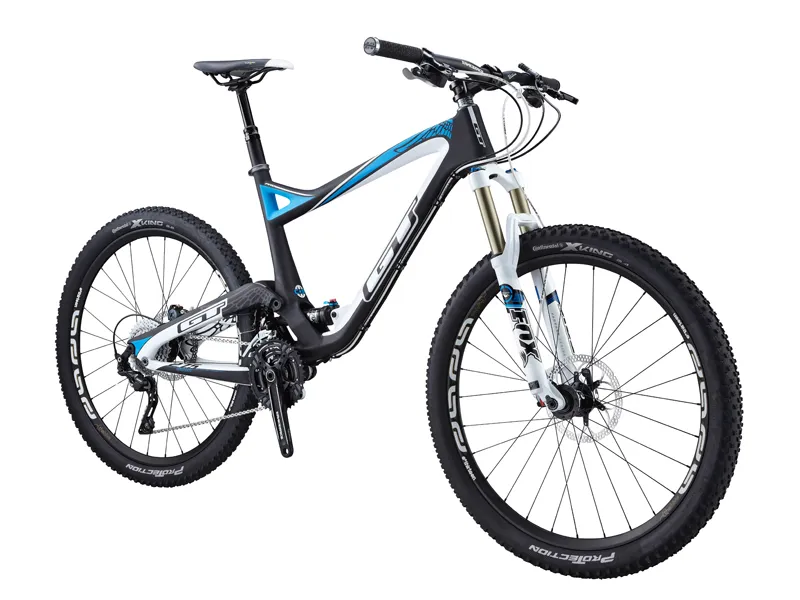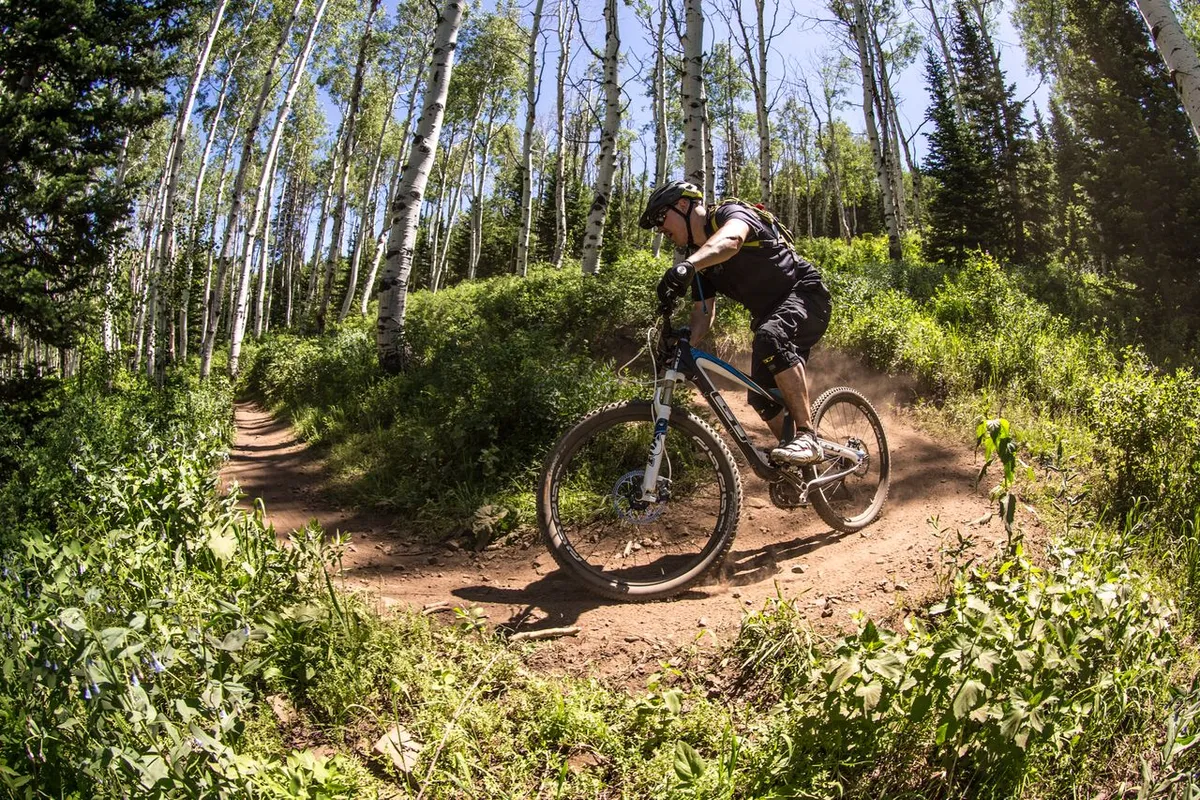The GT Sensor trail bike is back for 2014, and it’s an altogether different proposition to the 2013 machine. Undergoing the same radical redesign as its longer travel brother, the GT Force, the Sensor has heavily revised suspension and geometry and now embraces the 27.5in (650b) wheel size.
The untrained eye will find the 130mm Sensor difficult to distinguish from the longer travel Force. The easiest way to tell quickly is by looking at the head tube area, the Sensor getting a simpler, less beefy top and down tube junction.
Ride & handling: The more sensible and less fussy sibling
Given the similar looks, you might be expecting a similar ride to the one you get on the Force, but you’d be wrong. The Sensor is a more mature riding partner; it’s an efficient mile-muncher and, unlike its brother, shows no strong preference towards uphill or downhill terrain.
The geometry bias edges towards agility rather than stability. As a result, you get a bike that feels alive and responsive, particularly over flat, root-littered ground. The Sensor also does a great job of maintaining momentum, probably partly thanks to the additional rollover ability of the 27.5in wheels.
The trade-off that comes with this geometry is a less surefooted feel at higher speeds when the trail really opens out or steepens up. The Sensor still descends well for a 130mm bike, it’s just not a downhill demon like the Force.
The rear end uses the new GT Angle Optimized Suspension (AOS) technology, essentially an evolution of the i-drive (Independent Drivetrain) system. It retains the high pivot point of old but the shock and hardware have been repositioned dramatically to lower the overall centre of gravity.
A new forged alloy component, the PathLink, plays a key part in the design. Its job is to move the bottom bracket in relation to the suspension’s action. By doing so it minimises chain growth, which in turn means that the suspension’s work stays separate from that of the transmission.
Being nearly 3cm shorter in the wheelbase than the Force, the Sensor is noticeably easier to manoeuvre for switchbacks and tighter turns. The 13.5in bottom bracket height further aids cornering abilities, but riders must be wary of striking the pedals.
Unfortunately, the supplied Continental X-King tyres didn’t pair well with the dusty and loose Utah trails we used as a test ground, so pushing hard required great care. Still, frame stiffness was never an issue – credit to the Maxle rear axle and 15mm hollow suspension pivot points.
The Fox Float CTD shock is best kept in the Descend setting. We found that Trail mode was a bit aggressive, cutting small-bump sensitivity too much. Regardless of the setting, though, the Sensor is an exceptional climber.
Some testers really gelled with the handling, but for the majority of the riding we encountered we’d have rather been on the Force, simply because we would have had more fun. If you’re looking for an all-day expedition machine or marathon bike then the Sensor is no doubt the better choice.

GT Sensor Carbon Pro
Frame & equipment: Well thought out, but not the height of fashion
Unlike the Force, the GT Sensor will be sold in a more affordable aluminium version as well as the Carbon Pro model we tested.
One downside to the new compact linkage configuration and shock placement is that the shock shaft is hard to see clearly. Helpfully, GT have included a sag indicator on the swingarm for this reason.
The Sensor Carbon Pro includes everything the modern trail rider requires. An 80mm cockpit is standard across the range regardless of size, as is a usefully wide 740mm handlebar.
The Fox 32 Float CTD fork provided enough stiffness to keep the line but is far from matching the Sensor’s rigid chassis. Control was never an issue and the unit worked in unison with the Fox rear end.
Braking is taken care of by Formula T1 discs; 180mm rotors front and rear provide ample power, but odd feedback after repeated runs left us unimpressed. We had the same issue on the Force, which features an identical setup.
We’ve always been a fan of the RockShox Reverb Stealth post, and on the Sensor this was no exception. e*thirteen's TRS+ alloy hoops stayed tight and true despite our best efforts to prove them otherwise.
The Sensor Carbon Pro tips the scales at 12.6kg (27.8lb). The Force Carbon Pro came in at 13.48kg (29.72lb), further spelling out that the Sensor’s own biggest enemy might be in the same family.
All prices are yet to be announced, with the first stock expected to land in September.


